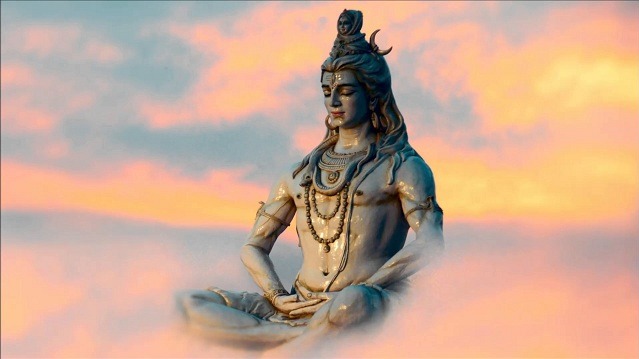The celebration of Shravan month has historical roots in Hindu mythology and traditions. According to ancient scriptures, during the Samudra Manthan (churning of the cosmic ocean) by gods and demons, various divine objects and beings emerged.
However, one of the objects was the poison Halahala, which could potentially destroy the universe.

To protect the universe, Lord Shiva consumed the poison, but his throat turned blue due to its potency. Since then, Shiva is known as Neelkanth, meaning ‘the one with a blue throat.’
Meanwhile, the incident gave birth to the Shravan month which has been considered highly auspicious, and devotees celebrate it to worship Lord Shiva. The month is dedicated to honouring Shiva’s sacrifice and seeking his divine blessings.
Shravan: Nurturing Devotion and Divine Connection
On the holy day of the first Monday of Shravan, let us observe the religious and spiritual significance of the divine month celebrated for Lord Shiva.
1. Devotion to Lord Shiva

Shravan is considered the holiest month dedicated to Lord Shiva, and devotees engage in various rituals and prayers to seek his blessings.
2. Fasting and Austerity
Many Hindus observe fasting during Shravan, especially on Mondays, which are known as ‘Shravan Somvar.’
Fasting is seen as a means to purify the mind and body, cultivate self-discipline, and strengthen one’s devotion.
3. Offering Bilva Leaves and Water

Devotees offer Bilva leaves (bel patra) and water to Lord Shiva during Shravan. It is believed that these offerings please Lord Shiva and bring blessings and prosperity.
4. Chanting Mantras and Sacred Hymns
Reciting sacred hymns, such as the Shiva Mahamrityunjaya mantra or Om Namah Shivaya, is a common practice during Shravan.
Shiva’s devotees engage in continuous chanting to invoke divine energy and seek spiritual upliftment.
5. Pilgrimages and Holy Baths

Many devotees embark on pilgrimages during Shravan to sacred sites associated with Lord Shiva, such as the Amarnath Yatra in Jammu and Kashmir.
Taking holy baths in rivers or lakes, especially during the auspicious days of Shravan, is believed to cleanse sins and purify the soul.
6. Spiritual Reflection and Self-Improvement
Shravan encourages devotees to engage in introspection, self-reflection, and self-improvement. It is a time for practising virtues, cultivating positive qualities, and letting go of negative tendencies.
The essence of Shravan lies in deepening one’s connection with the divine, seeking spiritual growth, and practising devotion and self-discipline.
Usually, Shravan is experienced for a month. However, this year, the holy month holds a tenure of two months. The divine month has started from June 4 and will continue till August 31, 2023.
It is the time for introspection, spiritual growth, and seeking the divine blessings of Mahadeva.

